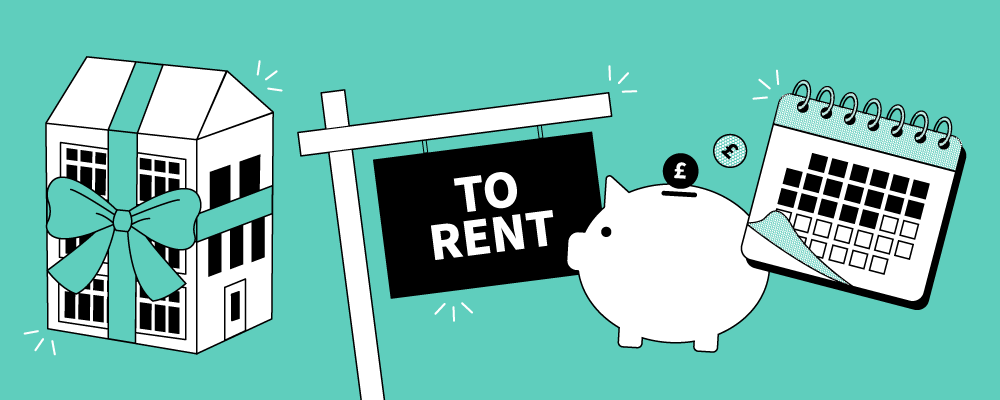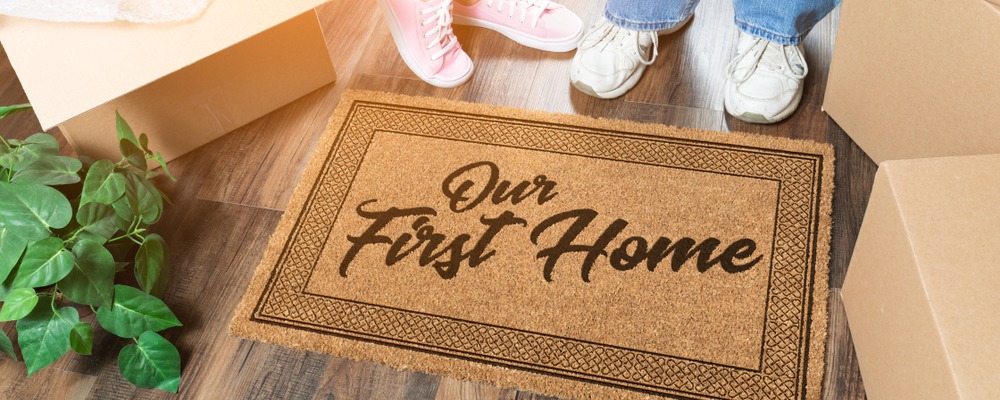
From the moment you step into your new home, you'll have several monthly costs to budget for. Your mortgage will likely be your biggest expense, and this amount is clearly set out in your mortgage offer. However, there are other household expenses worth planning for as well. Making sure you've budgeted for all your monthly outgoings lets you enjoy your new home with complete peace of mind.
Read on to find out some of the key new home expenses you should budget for.
1. Insurance
As part of your mortgage agreement, lenders require you to have buildings insurance in place before approving the loan. This covers you financially if any structural damage needs to be repaired. The only exception to this is when purchasing a leasehold property, as buildings insurance is typically included in the service charge .
We recommend combining buildings insurance with contents insurance for complete protection of your new home and everything inside it. Before your moving day arrives, check whether your contents insurance includes coverage during your move – this ensures your belongings are protected while in transit.
2. Council tax
Your council tax payments will depend on your new home's value, your personal circumstances and local rates. You may qualify for reductions, including a 25% discount if you're living alone. In England and Scotland, properties are categorised from band A (lowest) to band H (highest), while properties in Wales range from bands 1 to 9. Your local council sets the annual amount for each band.
Most homeowners pay their council tax in 10 monthly instalments, typically between April and January, giving you a break from payments in February and March. However, most councils will happily accommodate a request to pay over 12 months instead.
We recommend contacting your local council as soon as possible after moving into your new home to set up your payments. This helps you avoid missed payments, which could result in your council requesting the full annual amount in one payment, potentially impacting your household budget.
3. Ground rent and service charges
For those buying a flat or leasehold property, there will be either monthly or quarterly costs you’ll need to factor into your budget. This is for the ground rent and service charges:
• Ground rent is a fee paid by the leaseholder to the freeholder to rent the land on which their property is built.
• Service charges cover the maintenance and upkeep of the building and communal areas. Building insurance is typically included in the service charge.
4. Utility bills
There are plenty of utility bills you’ll need to stay on top of when you move into your new home, including:
Gas and electricity
When you first step into your new home, you'll automatically be placed on a standard energy tariff if the previous occupier has notified their supplier. While this ensures you have gas and electricity from day one, we recommend taking a moment to explore your options. This temporary arrangement isn't always the most cost-effective, so shopping around for a better deal can help you save on your monthly outgoings.
Water
Your water supply works a little differently from your energy. Rather than choosing between providers, you'll be allocated one based on your new home's location. The good news is that all new build homes since 1990 have been fitted with water meters, meaning you'll only pay for what you use. Most water companies offer flexible payment options, typically monthly or six-monthly, allowing you to choose what works best for your household budget.
TV and broadband
TV and broadband services are an investment in your home life, and it’s worth taking time to explore the market. Many providers offer attractive new customer discounts that can make a real difference to your budget. Remember to factor in your TV Licence – a legal requirement for watching live television, which costs £174.50 annually.
5. Maintenance and repairs
You are responsible for your home's upkeep, which your landlord may have handled previously if you were renting. While you can't predict exactly when maintenance issues will arise, it’s worth keeping some money available that you can dip into if needed.
Buying a new build home can mean lower initial maintenance costs as everything will be new when you move in. However, there are things you can do to reduce the likelihood of unexpected expenses, including:
• Scheduling annual boiler services.
• Having electrical systems checked every five years.
• Checking and maintaining your home’s exterior, including gutters and fencing.
• Addressing any leaks or cracks as soon as you notice them to prevent further damage, which could cost more.
Ready to become a homeowner? Explore our range of new build homes and flats around London. We also have fantastic homebuying offers to help you move.
Call our Sales Advisers to get started today.


